Kia EV9 vs Lotus Emeya – Differences & prices compared
Compare performance, boot capacity, efficiency and price at a glance.
Find out which car is the better choice for you – Kia EV9 or Lotus Emeya?
Costs and Efficiency:
Price and efficiency are key factors when choosing a car – and this is often where the real differences emerge.
Kia EV9 has a decisively advantage in terms of price – it starts at 53100 £, while the Lotus Emeya costs 92600 £. That’s a price difference of around 39428 £.
In terms of energy consumption, the advantage goes to the Lotus Emeya: with 18.70 kWh per 100 km, it’s hardly perceptible more efficient than the Kia EV9 with 19.50 kWh. That’s a difference of about 0.80 kWh.
As for range, the Lotus Emeya performs hardly perceptible better – achieving up to 580 km, about 17 km more than the Kia EV9.
Engine and Performance:
Power, torque and acceleration say a lot about how a car feels on the road. This is where you see which model delivers more driving dynamics.
When it comes to engine power, the Lotus Emeya has a convincingly edge – offering 918 HP compared to 508 HP. That’s roughly 410 HP more horsepower.
In acceleration from 0 to 100 km/h, the Lotus Emeya is significantly quicker – completing the sprint in 2.80 s, while the Kia EV9 takes 4.60 s. That’s about 1.80 s faster.
In terms of top speed, the Lotus Emeya performs to a small extent better – reaching 256 km/h, while the Kia EV9 tops out at 220 km/h. The difference is around 36 km/h.
There’s also a difference in torque: Lotus Emeya pulls clearly perceptible stronger with 985 Nm compared to 740 Nm. That’s about 245 Nm difference.
Space and Everyday Use:
Cabin size, boot volume and payload all play a role in everyday practicality. Here, comfort and flexibility make the difference.
Seats: Kia EV9 offers clearly perceptible more seating capacity – 7 vs 5.
In curb weight, Kia EV9 is barely noticeable lighter – 2392 kg compared to 2555 kg. The difference is around 163 kg.
In terms of boot space, the Lotus Emeya offers distinct more room – 509 L compared to 333 L. That’s a difference of about 176 L.
In maximum load capacity, the Kia EV9 performs convincingly better – up to 2393 L, which is about 1005 L more than the Lotus Emeya.
When it comes to payload, Kia EV9 slightly takes the win – 615 kg compared to 545 kg. That’s a difference of about 70 kg.
Who wins the race?
The Lotus Emeya proves to be wins the duel decisively and therefore becomes our DriveDuel Champion!
Lotus Emeya is the better all-rounder in this comparison.
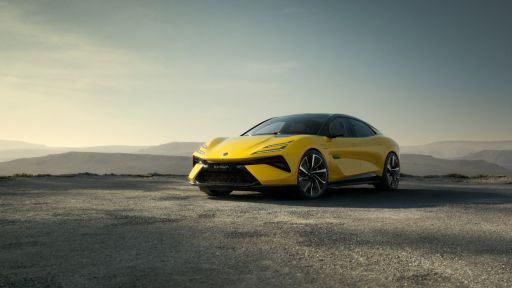
Lotus Emeya
Kia EV9
The Kia EV9 represents a bold step forward in the automotive world with its distinctive design and futuristic appeal. This all-electric SUV promises to provide a spacious and comfortable cabin experience, making it ideal for families and long journeys. With its emphasis on sustainability and advanced technology, the EV9 aims to redefine the standards for electric vehicles in its category.
details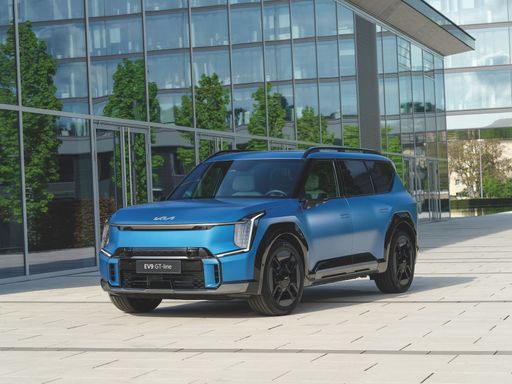 @ press.kia.com
@ press.kia.com
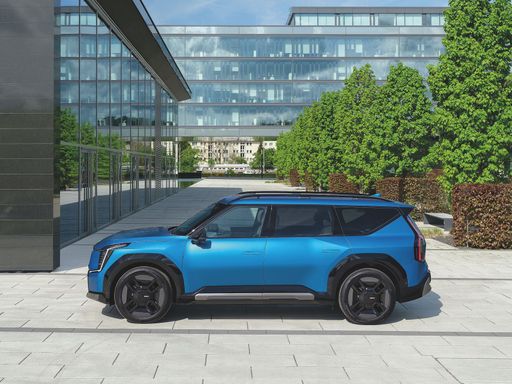 @ press.kia.com
@ press.kia.com
 @ press.kia.com
@ press.kia.com
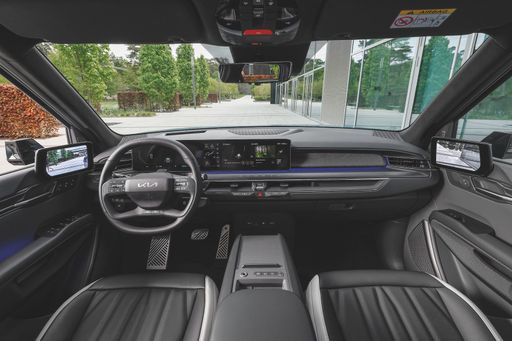 @ press.kia.com
@ press.kia.com
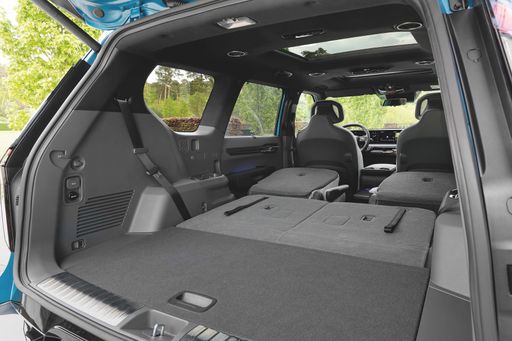 @ press.kia.com
@ press.kia.com
Lotus Emeya
The Lotus Emeya represents a bold step forward for the brand, combining sleek design with cutting-edge technology. This electric vehicle offers a perfect blend of performance and luxury, capturing the essence of Lotus's heritage while pushing into the future. Its aerodynamic silhouette and plush interior ensure that both driving enthusiasts and comfort seekers will find much to admire.
details @ media.lotuscars.com
@ media.lotuscars.com
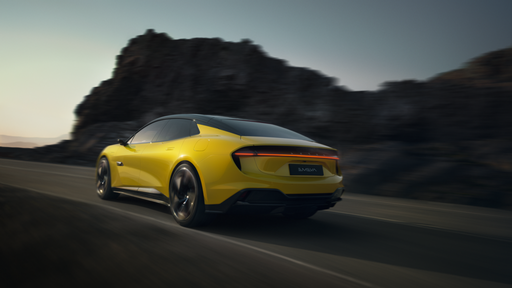 @ media.lotuscars.com
@ media.lotuscars.com
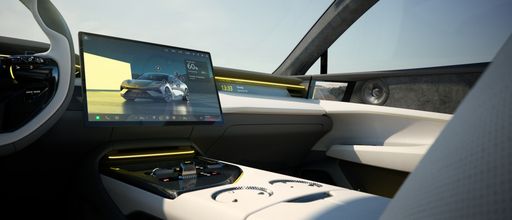 @ media.lotuscars.com
@ media.lotuscars.com

|

|
|
|
|
Costs and Consumption |
|
|---|---|
|
Price
53100 - 78000 £
|
Price
92600 - 138000 £
|
|
Consumption L/100km
-
|
Consumption L/100km
-
|
|
Consumption kWh/100km
19.5 - 22.8 kWh
|
Consumption kWh/100km
18.7 - 22.4 kWh
|
|
Electric Range
443 - 563 km
|
Electric Range
485 - 580 km
|
|
Battery Capacity
76.1 - 99.8 kWh
|
Battery Capacity
98.90 kWh
|
|
co2
0 g/km
|
co2
0 g/km
|
|
Fuel tank capacity
-
|
Fuel tank capacity
-
|
Dimensions and Body |
|
|---|---|
|
Body Type
SUV
|
Body Type
Hatchback
|
|
Seats
6 - 7
|
Seats
5
|
|
Doors
5
|
Doors
5
|
|
Curb weight
2392 - 2664 kg
|
Curb weight
2555 - 2650 kg
|
|
Trunk capacity
333 L
|
Trunk capacity
509 L
|
|
Length
5010 - 5015 mm
|
Length
5139 mm
|
|
Width
1980 mm
|
Width
2005 mm
|
|
Height
1755 - 1780 mm
|
Height
1459 mm
|
|
Max trunk capacity
2318 - 2393 L
|
Max trunk capacity
1388 L
|
|
Payload
542 - 615 kg
|
Payload
450 - 545 kg
|
Engine and Performance |
|
|---|---|
|
Engine Type
Electric
|
Engine Type
Electric
|
|
Transmission
Automatic
|
Transmission
Automatic
|
|
Transmission Detail
Reduction Gearbox
|
Transmission Detail
Reduction Gearbox
|
|
Drive Type
All-Wheel Drive, Rear-Wheel Drive
|
Drive Type
All-Wheel Drive
|
|
Power HP
204 - 508 HP
|
Power HP
612 - 918 HP
|
|
Acceleration 0-100km/h
4.6 - 9.4 s
|
Acceleration 0-100km/h
2.8 - 4.2 s
|
|
Max Speed
185 - 220 km/h
|
Max Speed
250 - 256 km/h
|
|
Torque
350 - 740 Nm
|
Torque
710 - 985 Nm
|
|
Number of Cylinders
-
|
Number of Cylinders
-
|
|
Power kW
150 - 374 kW
|
Power kW
450 - 675 kW
|
|
Engine capacity
-
|
Engine capacity
-
|
General |
|
|---|---|
|
Model Year
2023 - 2025
|
Model Year
2025
|
|
CO2 Efficiency Class
A
|
CO2 Efficiency Class
A
|
|
Brand
Kia
|
Brand
Lotus
|
Is the Kia EV9 offered with different drivetrains?
The Kia EV9 is offered with All-Wheel Drive or Rear-Wheel Drive.
The prices and data displayed are estimates based on German list prices and may vary by country. This information is not legally binding.
